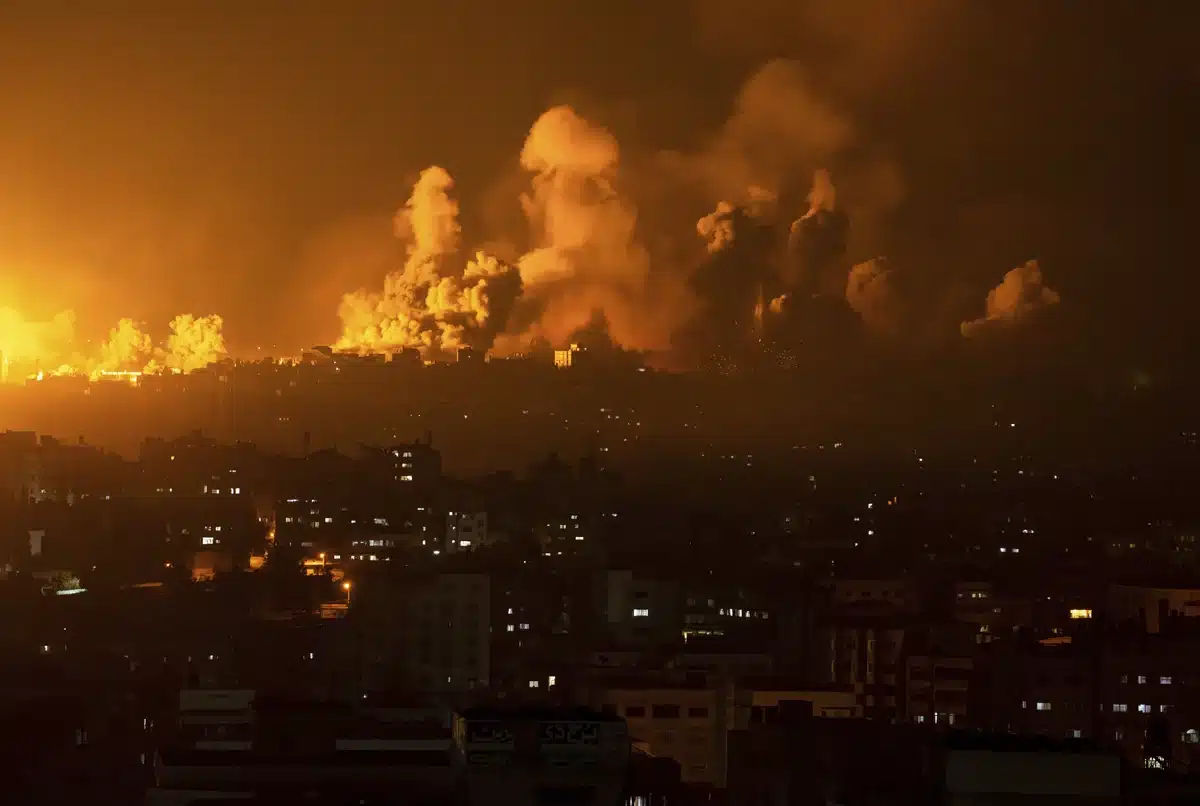Can War Ever Be “Just”? – Part 1 – Greg Albrecht

Question:
I am a long-time reader and listener. I cannot tell you how much PTM and CWR have helped me and how much this ministry means to me.
October 7, 2023 reminded me of my long-term struggle with the morality of warfare. Immediately after October 7 I was appalled by the evil unleashed by Hamas, brutalities including barbarous rape, torture and capture of hostages. But then as the war has continued, as Israel tries to free the hostages, all the while the staggering suffering of the Palestinians in Gaza intensifies. I realize there is another “side” of this war.
My struggle with war is not isolated to just October 7 and the aftermath, but most of my life I have tried to make sense of war. People, including Christians, are all over the map about this war in Gaza and war in general, as you well know. Now we have pro-Palestinian protestors who say they are crying out for justice. I agree with all responses of compassion for victims of warfare, but I hear protestors (and others) saying Israel should be condemned because war must be fair and equal. It’s all so confusing. Can you help me make sense of this perplexing dilemma? What do you say about all of this, from a Christ-centered, grace-based perspective?
A Four-Part Response:
Part One: Can War Ever Be “Just”?
A BRIEF OVERVIEW: The predominant, indeed the only teaching regarding war and violence for early Christ followers, was non-violent pacifism, given Jesus’ teaching about loving one’s enemies and turning the other cheek. Given Jesus’ teachings, non-violent pacifism is the clear answer to the question of warfare. However, we should also remember that the first few generations of Christ followers lived in a time and cultural context far different than our own. In some ways, for Christians then, warfare was a cut-and-dried issue. There was really no debate. One, according to the gospel, did not kill, but was more likely to be killed because of following Christ.
Most Christians within the Roman Empire in the early years of Christianity were a despised minority who were not allowed to serve in government – it was in fact illegal in many places to even admit to being a Christian. Christians were thus far more likely to live apart, to be separate and not fully involved in many of the challenges facing the nation in which they resided, including military service and being a part of waging war.
By contrast, Christ followers living in the 21st century western culture experience a culture where military service holds a special place of honor. Soldiers who have laid down their lives for their country are respected, even revered, and many if not most Christians in today’s western world resonate with what they see as Christ-like service some soldiers give to their nations, paying what is often called “the ultimate price” in their service.
It seems the accepted view of warfare within Christendom today is far from the perspectives of Jesus and the practices of the earliest Christ followers. When one examines the teachings of what are called the “early church fathers” one finds absolute agreement that no form of violence toward another, even an enemy, is justified. Rather, following the teachings of Jesus, early Christ followers were absolutely devoted to non-violence. Tertullian (160 AD-240) said “…the Lord, by disarming Peter, disarmed every soldier.”
Jesus taught that the values and beliefs which he, as our risen Lord, produces in those who follow him include peacemaking, rather than warmongering or even justifiable self-defense. Jesus told Pilate that his kingdom was not “of” this world – his kingdom is “not from here” – the values and beliefs of the Kingdom of God are not built on the foundation of the kingdoms of humanity. The Kingdom of God is “other-worldly.”
The early Christians perceived their identity to be in Christ, not in a nation or religion. Today, Christ followers are well served to find their primary identity in Christ, holding his banner higher than any flag or symbol or loyalty to denomination, nation or political party. Christ followers are pilgrims and strangers on this earth, citizens of a heavenly kingdom even while holding dual citizenship in a kingdom of this world. We live as resident aliens, and of course those of us who live in countries blessed by the absence of day-to day armed conflict, where food is scarce, where water is polluted and where many grieve the news of one of their family who has died in warfare, are indeed blessed.
Much of Christian history details the migrations of Christ followers from countries more likely to be at war to safer havens of countries less likely to suffer such suffering and misery. The migrations were not merely for convenience and personal safety, but more importantly because confrontation with violence is diminished in countries enjoying the relative absence of warfare and overt hostilities.
WATCH FOR PART TWO OF THIS SERIES – CAN WAR EVER BE “JUST”?
If this post has helped you, please subscribe and share it freely. We also invite you to help us continue to help others with a donation. Click here if you’re able to partner with us.


 Plain Truth Ministries | Box 300 | Pasadena, CA 91129-0300
Plain Truth Ministries | Box 300 | Pasadena, CA 91129-0300
